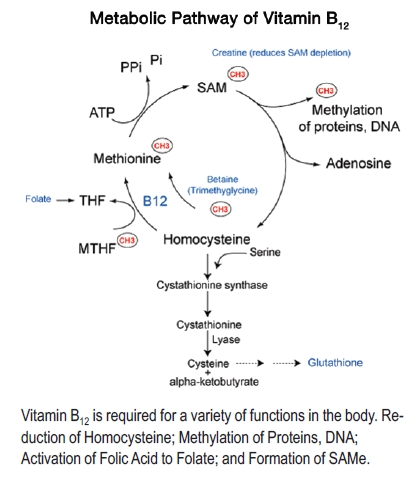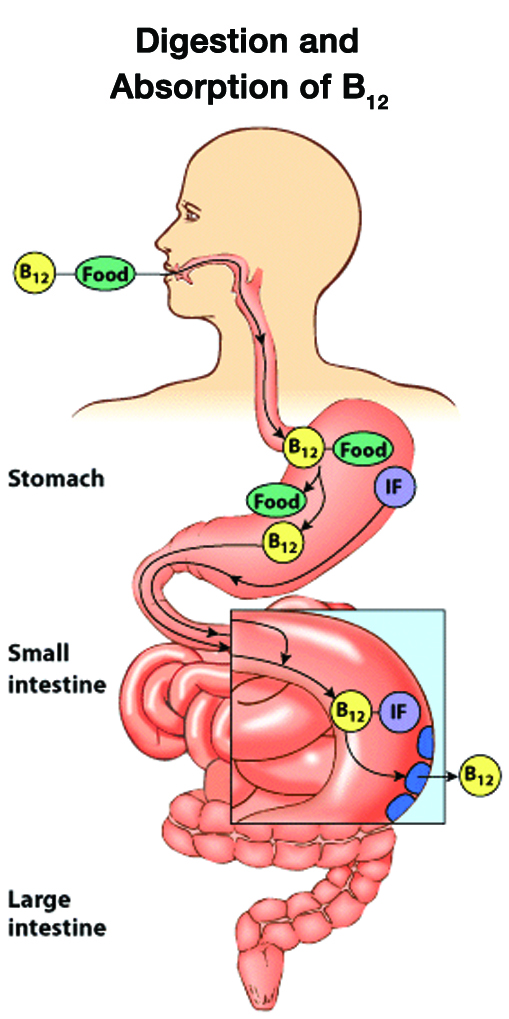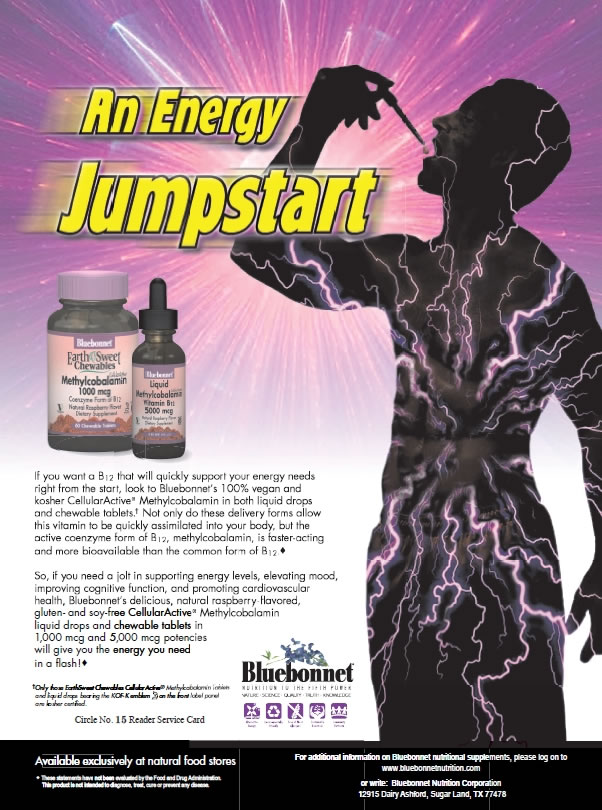What is vitamin B12 and what is its importance in the body?
Vitamin B12 is the most chemically complex of all the vitamins. Vitamin B12 is a collective term for a group of cobalt-containing compounds known as corrinoids. Vitamin B12 is needed for the maintenance of the nervous system, the production of energy, the synthesis of molecules such as RNA and DNA, and the production of red blood cells. More specifically, vitamin B12 as methylcobalamin is the perfect adjunct for:
• Supporting cardiovascular health by reducing the cytotoxic effects of elevated homocysteine levels.
• Reducing age-related cognitive decline by lowering
homocysteine levels.
• Elevating mood by addressing B12  deficiencies that deplete the levels of S-adenosylmethionine (SAMe).
deficiencies that deplete the levels of S-adenosylmethionine (SAMe).
• Generating energy and endurance by providing oxygenated red blood cells throughout the body.
• Saturating the plasma levels and reducing the chance of a B12 deficiency.
What causes vitamin B12 deficiency and who would benefit from supplementation?
Unfortunately, without adequate B12 intake, proper red blood cell formation, neurological function and DNA synthesis cannot occur. In fact, vitamin B12 deficiency is characterized by a defect in DNA synthesis that leads to larger and fewer red blood cells (a condition known as pernicious anemia), reduced amounts of SAMe (which is necessary for neurotransmitter synthesis) and elevated homocysteine levels (which could negatively affect the heart and brain). Symptoms that usually occur include fatigue, weakness, difficulty thinking/concentrating, anemia and more.
Those who are at risk of B12 deficiency and could benefit from supplementation include seniors over 60 and individuals taking certain medications because they often absorb vitamin B12 less efficiently than others; anemics; vegans/vegetarians and their offspring, since they typically do not consume enough vitamin B12 because the primary sources of B12 are of animal origin; alcoholics, since excessive  amounts inhibit B12 absorption; individuals supplementing with folate (i.e., if there are inadequate levels of B12 available, methylated folate levels can become depleted—known as the methyl-folate trap—and DNA production slows); those suffering from fatigue or auto-immune/bowel disorders; and athletes/active lifestyle enthusiasts.
amounts inhibit B12 absorption; individuals supplementing with folate (i.e., if there are inadequate levels of B12 available, methylated folate levels can become depleted—known as the methyl-folate trap—and DNA production slows); those suffering from fatigue or auto-immune/bowel disorders; and athletes/active lifestyle enthusiasts.
Which form of vitamin B12 is best for me? Methylcobalamin or cyanocobalamin?
Cyanocobalamin is the principal form of the vitamin used in the fortification of foods and in nutritional supplements and is commonly found in meats, cheese, milk, eggs and fish. Cyanocobalamin is an extremely effective form of B12 for those who do not a have deficiency or are not an at-risk group for depleted levels, which is why most formulas use this form of B12.
While cyanocobalamin plays an important role in the conventional duties of vitamin B12 as previously mentioned, methylcobalamin, the active form of vitamin B12, has some metabolic and therapeutic applications not shared by the other forms of vitamin B12. Plus, scientific evidence shows that methylcobalamin is in fact utilized more efficiently than cyanocobalamin and that urinary excretion is one-third that of a similar dose of the inactive form. This means that methylcobalamin has greater tissue retention than cyanocobalamin, which is why Bluebonnet Nutrition chose to provide 100% of the active form of vitamin B12 in its CellularActive® Methylcobalamin liquid and chewable formulas.
What is the most effective delivery form of vitamin B12?
You hear a lot about people taking vitamin B12 injections as a quick and efficient method of getting B12 into the bloodstream. But there’s no need to go to that extreme since liquid oral and chewable formulas that work just as effectively are on the market from supplement companies like Bluebonnet.
Chewable and liquid oral forms offer better flavor, greater ease of administration, increased compliance and, most importantly, enhanced digestibility when compared to capsules or caplets. The absorption rate is much faster with a liquid or chewable formula. In fact, capsules and caplets typically take between 30 and 45 minutes to break down—the disintegration/ dissolution time set by the U.S. Pharmacopeia—whereas liquids and chewables are assimilated in little to no time at all. Consumers who have
difficulty swallowing are also looking for an easier way to bridge the nutrient gaps in their diets, and these two naturally delicious dosage forms lead to improved compliance.
Bluebonnet now provides CellularActive® Methylcobalamin 1000 and 5000 mcg potencies in both liquid and chewable forms so that the already faster-acting, active form of vitamin B12 can start working its magic in the body right away.


Trisha Sugarek MacDonald holds a Master of Science in Nutrition from Texas Woman’s University and also a Bachelor of Science Degree in Nutrition and Foods from Texas State University. Mrs. MacDonald is currently the Director of Research & Development as well as the National Educator at Bluebonnet Nutrition where she investigates new ingredients, directs the launch of new products, and provides industry training on numerous subjects as it relates to the connection between nutrition and health. She is a frequent editorial contributor and lecturer on the benefits surrounding the responsible use of supplements.
Published in WholeFoods Magazine, August 2014










